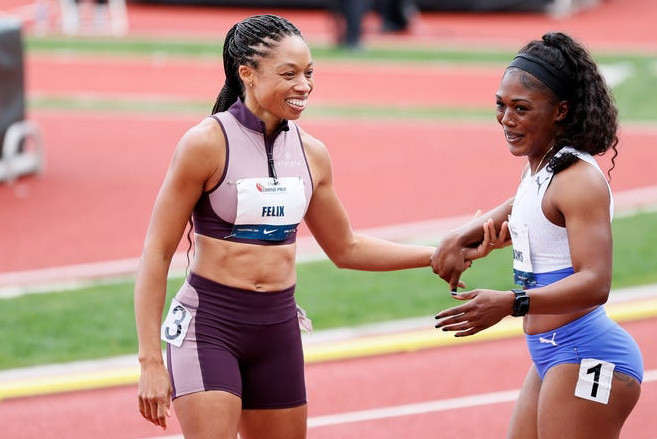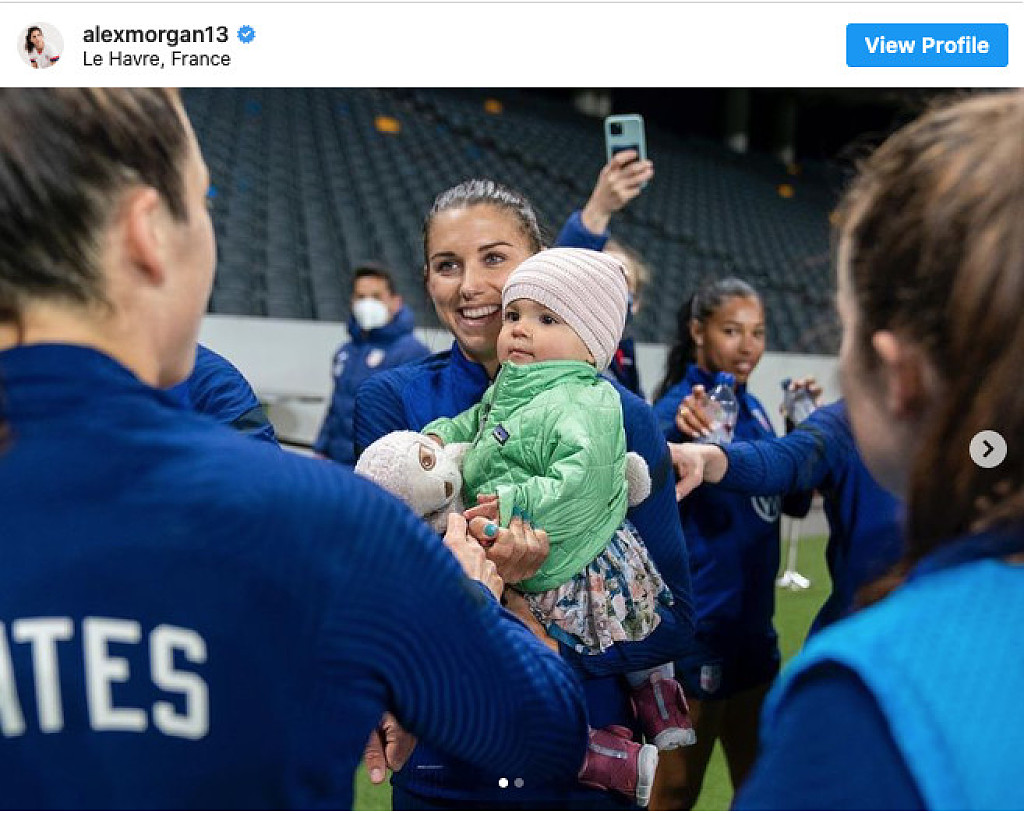Running News Daily
Running News Daily is edited by Bob Anderson. Send your news items to bob@mybestruns.com Advertising opportunities available. Train the Kenyan Way at KATA Kenya and Portugal owned and operated by Bob Anderson. Be sure to catch our movie A Long Run the movie KATA Running Camps and KATA Potato Farms - 31 now open in Kenya! https://kata.ke/
Index to Daily Posts · Sign Up For Updates · Run The World Feed
COVID-19 restrictions for Tokyo Olympics shouldn't apply to female athletes' infants, toddlers
A few days shy of her first birthday, Alex Morgan’s daughter Charlie is already more well-traveled than most adults.
There were the two-plus months in England, when Morgan was playing for Tottenham. The week in the Netherlands, followed by a few days in France, for U.S. women’s matches. There’s likely to be another trip in June for pre-Olympic warm-up games.

“It’s important to allow mothers that option, to have their kids with them while they compete. I’ve been lucky to be able to do that with every single camp and matches with Charlie,” Morgan said last month. “It’s incredibly important to feel supported as a mom. I hope I continue to feel that way leading into the Olympics and in the Olympics.”
But COVID-19 restrictions for the Tokyo Games could force Morgan and a small number of other athletes who are mothers of small children to choose between their dreams of competing at the Olympics and their families.
At previous Olympics, children of competing athletes would come to the Games like any other family member. Visas, if necessary, would be arranged, and they would travel with their other parent, another family member or caregiver. The family would either stay together outside the Olympic village, or moms would arrange to see their children between training and competitions.
That won’t be possible this summer. Japan is desperately trying to keep the Olympics and Paralympics from turning into a superspreader event, and the International Olympic Committee and Tokyo organizers have already said foreign fans won’t be allowed at the Games.
Japan also currently bars entry to residents of 152 countries “unless special exceptional circumstances are found,” meaning someone from the United States – and pretty much every other country sending athletes to the Games – can’t simply get on a plane and go to Tokyo.
But if allowing female athletes to bring their infants and toddlers to the Tokyo Games doesn’t qualify as a “special exceptional circumstance,” I don’t know what would.
“I would be most sensitive to moms that are breast-feeding, new moms, moms with very small babies,” sprinter Allyson Felix, whose daughter Camryn turned 2 in November, said last month. “I know how crucial that is. I know for me, when I competed when Cammy was under a year old, you need to be near your child. That needs to be taken into consideration for those mothers.”
Tokyo organizers did not respond to questions about whether female athletes will be allowed to bring their young children. IOC spokesman Christian Klaue said women athletes who want to bring their children to Tokyo will be dealt with on a case-by-case basis, without pr
Of course it will be crushing for partners, parents and siblings to miss what is, for many athletes, a once-in-a-lifetime event, and if any family members are allowed, no doubt everyone will be clamoring to go. But prohibiting babies and toddlers from accompanying their mothers to the Games is not remotely the same, and the IOC and Tokyo organizers need to acknowledge that.
This isn’t a matter of, “Oh, I want to have a selfie with my baby at the finish line.” For female athletes with an infant or a toddler, not having them in Tokyo can have a direct impact on their child-rearing decisions.
And their children’s health.
Breastfeeding benefits a child’s physical and cognitive development, and the World Health Organization – which the IOC relies on for medical advice – recommends children be breastfed “up to 2 years and beyond.” Research also indicates that mothers who have been vaccinated are passing COVID antibodies to their babies through breast milk, but that immunity only lasts so long as the child is nursing.
It’s possible athletes who are nursing and want to continue to do so could pump at the Games. But depending on the age of the child, that could require several hours each day.
“I am still nursing Zoe and cannot imagine her not being with me,” marathoner Aliphine Tuliamuk, whose daughter was born in January, told USA TODAY Sports in a statement. “There are many more challenges than usual at this Olympic Games, but I do hope that the needs of mothers, families and children are given full consideration and support."
Everyone is sympathetic to the challenges of holding an Olympics during a pandemic, as well as the concerns of the Japanese people. But allowing women athletes to bring their infants and toddlers to Tokyo, along with a caregiver, would not add a significant number of people.
The United States typically has the largest team at the Olympics, 500-plus for a Summer Games, and this affects only a handful of its athletes. So at most we’re talking, what, a few dozen additional people?
It’s not a large number, but the impact is.
The IOC has made a big show in recent years of elevating women and promoting gender equity, and will proudly tout its statistics on female representation at the Games and in its leadership roles. In March, Tamayo Marukawa, Japan’s minister in charge of the Tokyo Games, said in a statement that the “active participation of women will lead to the creation of a prosperous, vibrant and sustainable society and the realization of a society in which everyone can live comfortably.”
By telling female athletes to leave their young children behind, however, the IOC and Tokyo organizers show how empty those words are. You cannot claim to value and respect women if you are not supporting and empowering them to make choices that are in the best interest of their families.
by USA Today
Login to leave a comment




